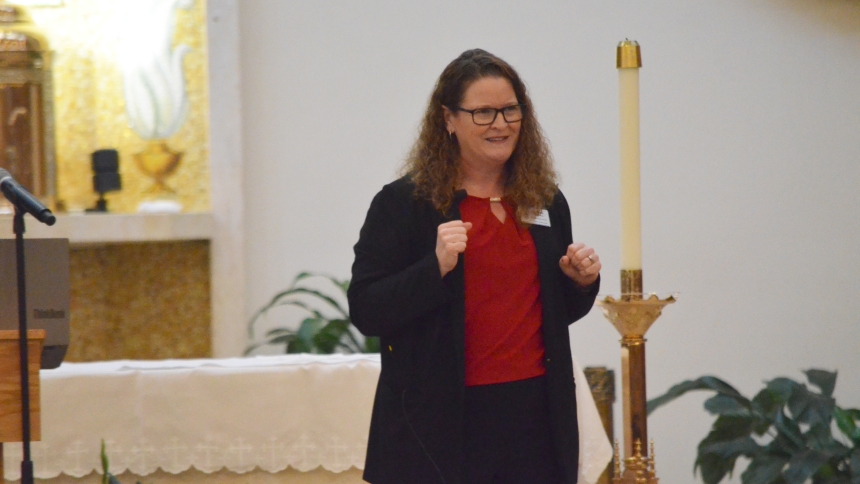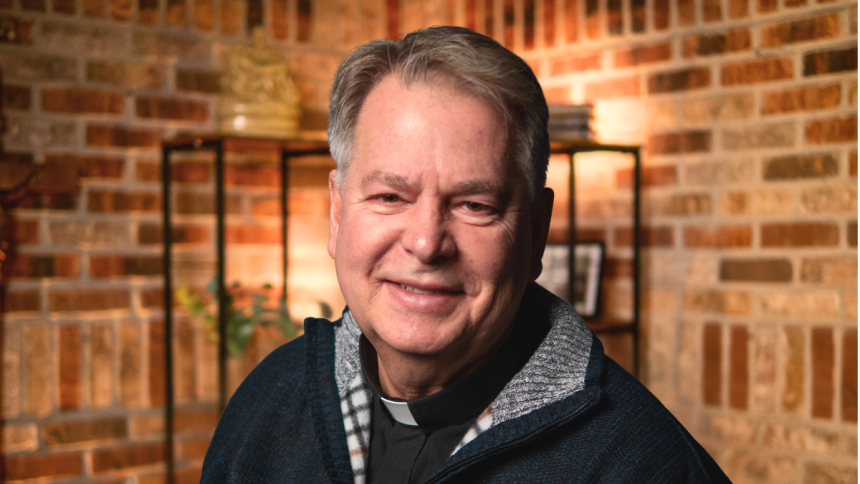
As published in the Northwest Indiana Catholic on December 16, 2018
In my last several columns, I have been reflecting on the Kerygma, the essential components of the Good News, the saving proclamation of the Gospel of Jesus Christ. Four aspects stand out: the infinite, tender and unconditional love of God for us; we are broken and wounded because of sin and death and we need a Savior; Jesus Christ, in his Incarnation, ministry, death and resurrection offers us the hope of forgiveness and eternal life; when we embrace Christ, we receive the Great Commission to go forth as missionary disciples, spreading this joyful news of salvation to others.
This fourth component, missionary discipleship is the interpretive key to our whole diocesan synod experience. Too often as Catholics, we have quietly and individually lived out our faith, but seldom have we equipped believers to share that faith with those around them. Believers focus on their relationship with God; missionary disciples help others grow their own spirituality.
Believers embrace a deep prayer life which is seldom shared with other people; missionary disciples boldly and joyously pray with others out loud and speak of their love for Christ. The entire goal of the synod is to launch an ongoing pastoral renewal throughout the diocese so that our leaders and people grow in their understanding and practice of missionary discipleship.
In my pastoral response to the synod, I framed this dynamic through the lens of Jesus’ two commands, “Follow me” and “Go forth.”
“Follow me” bids us to grasp the primary need to be consistently open to ongoing evangelization ourselves. Letting others love and witness Jesus to us, pondering the many gifts and blessings that flow from our identity as beloved children of God: thinking often about the joy and meaning given to us through faith, seeing our relationship with God as a divine romance of adventure and purpose. All help us to reclaim and refresh our original call and keep us fired up in the power of the Holy Spirit.
Ongoing Christian formation is the second component of missionary discipleship, beginning in childhood, continuing in adolescence and reaching all the way from maturity to old age. As life-long learners, we need solid and age-appropriate catechesis all the way through - a formation that is intellectually robust, morally clear, emotionally powerful and deeply loving.
In other words, God wants to form our heads, hearts, will, soul and actions to put the good news of the Gospel into constant motion. With the Bible, the Catechism, the lives and writings of the saints and the profound knowledge contained in our whole Catholic tradition, we have the needed tools to be solidly formed in the life and revelation of God.
In prayer, worship and the sacraments, we experience the anointing of the Holy Spirit and the depths of God’s presence and love. A missionary disciple consistently prays every day, spending time with the Scriptures in meditation, offering praise, thanksgiving and petition to the Lord, perhaps praying the Rosary or another devotion, spending time in silence and solitude, reading a spiritual book reflectively and taking the time to boldly pray with others, especially family members and friends.
This prayer reaches its culmination in the celebration of the sacraments, which make us adopted children of God, bearers of the indwelling of the Trinity, and recipients of God’s mercy, forgiveness and salvation. A missionary disciple finds the center of life in the Eucharist, faithfully participating in this fundamental experience of the Paschal mystery at least every Sunday and holy day, if not more often, and discovers the depths of God’s mercy and forgiveness in the sacrament of reconciliation.
The second lens of missionary discipleship is Jesus’ command to “go forth” and proclaim the Gospel. Christian disciples call and form other disciples. This evangelizing task is urgent today, as we see more people, especially the young, disengage from the Church and question the utility of religion for their lives.
A fundamental need for us, as committed disciples, is to engage and listen to those who have drifted away, ceased joining the Sunday assembly or are even hostile to what Catholicism offers.
We will be most effective in proclaiming the Gospel to others by living a joyful, generous and faith-filled life. The most powerful tool of evangelization is the authenticity of true witness. We want others to say, “I don’t know what that person has, but I want it for me!”
Missionary disciples are both competent and confident to boldly pray with others, explain particular teachings of the Church, articulate their personal relationship with God, recommend good spiritual books and resources, generously serve the poor and sick, work for a more just and peaceful world and be joyful, invitational witnesses of the Gospel.
Imagine if every practicing Catholic was busy cultivating three or four people they know – a family member, co-worker, fellow student, friend or neighbor – moving them toward a deeper discipleship in the Lord!
This Advent, we ponder the beauty and goodness of the Incarnation, the love of the Lord who rushes to rescue us from the shipwreck of our sin and death through Jesus’ life-giving Paschal Mystery. To live in this luminous grace and proclaim it to others is the purpose and project of our human existence. In these final days of Advent, stop and let the Lord love you. Pass the gift on to those around you!
+ Donald J. Hying


